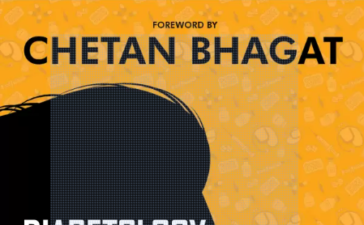If you have a solid grasp of the account and are interested in pursuing a career as a GST practitioner, this blog on the top 5 GST books for Mango Man is for you.
The Goods and Services Tax has recently emerged as a significant career for future jobs.
India’s new and developing indirect tax regime is known as the GST law. As a result, taxpayers need more guidance about registrations, refund claims, etc. In light of this, GST practitioners help taxpayers comply with the law. Knowledge of GST can open doors for different positions in this field.
Top 5 GST Books For Mango Man in 2024
The primary aim of introducing GST is to streamline the revenue collection process in India. As a result, employment prospects for experts in this field will improve. If you want to start your own business, consider these best GST books. Learning GST will help to open doors to many potential customers.
1. GST In a Nutshell
This book GST book serves as an introduction to GST and its many facets. These GST books for Mango Man have taken All applicable GST laws and regulations into account. “GST in a Nutshell” will present you with an overview of the tax laws, rules, and regulations that are in place in India and other nations that are seeking to expand their economies. Moreover, this book will focus on the basics of GST and how it influences our economy. You will learn the pros and cons side of the GST laws in this book.
Book covers:
- Basic
- CGST, SGST, IGST, Registrations,
- Time Value
- Input Tax Credit
- Payments and Invoicing
- Accounts & Records
- Reverse Charge
- TDS TCS
- Composition Scheme, Return filing
- Penalties, Assessments, Appeals, and Related Provisions.
The books can be found in–
2. Goods and Services Tax: A Practitioner’s Guide
This book by Bimal Jains is an excellent choice for beginners and professionals. It covers theoretical and practical understanding of different GST laws.
Moreover, this book explains the fundamentals with several examples and case studies to clear your concepts for novices. Here, you don’t need any prior knowledge of GST, and it offers a straightforward introduction to the subject.
3. Master Guide to Goods and Services Tax
When learning about the GST books for mango man, this is one of the best books available for beginners. GST laws are laid out with examples to help students grasp the underlying principles.
Sanjiv Agarwal and Gaurav Gupta explicitly mention each rule, making the document brief and straightforward. Questions and answers let students gauge their understanding of the material and clear up confusion. It is also quite economical for the students, which makes it a lot easier and better alternative.
4. GST Guide for Students: Making GST – Good & Simple Tax
Author Vivek Kr Agrawal is a licenced CA professional. He has been working as a tax professional for over ten years. He is affiliated with several business schools where he often presents seminars on taxation.
This book by Vivek Kr Agrawal is best for those with no prior knowledge of GST or who wish to expand their understanding.
He has explained new GST taxes easily and clearly through the book’s more than 100 examples.
The book avoids overwhelming its readers with unnecessary detail by making liberal use of schematics and an easy-to-follow question-and-answer format. The ideas are simplified, and the language is very simplistic so that the student may grasp them quickly.
5. GST in India: A Simplified Approach for Beginners
It is one of the best recently published books by J.K. Mittal. These GST books for Mango Man have discussed everything in great detail. Further, the book has illustrations, frequently asked questions (FAQs), diagrams, and flow charts to keep students engaged and make it easier to understand.
It’s a great student choice and offers a fresh take on GST law. Because it helps students review important concepts, this book is among the most widely recommended for aspirants.
This book covered:
- GST Acts
- GST Rules
- Reverse Charge Mechanism
- Forms & Proformas
- State GST & Compensation Cess
- Circulars, Press Releases & Public Notices
- Advance Ruling on GST
- Appeals & Revisions
Scope of GST Practioner in India
- Gaining GST knowledge might lead to a higher salary. The typical salary increase for certified professionals is between 15% and 25%.
- Since the government introduced GST, over two lakh new jobs have been created directly or indirectly related to GST management across the country. As a result, there has been an uptick in business for GST experts. One of the obvious advantages of taking a GST as a career is that it can open doors to better employment opportunities.
- Whether in the service or manufacturing sectors, businesses of all sizes must keep accurate books and records. They need someone with a deep understanding of GST, such as an accounts officer, director of accounts, or chartered accountant. As a result, the demand for Certified GST Professionals is exceptionally high. EY, Capgemini, Delloite, and many other well-known corporations have recently gone public.
- The introduction of GST has created an opportunity for professional administration organisations to help their clients adapt to the shifting business and tax landscape.
- There needs to be more qualified individuals in the local market who are familiar with the new single-tax system and the peculiarities resulting from the dual privileges of the Centre and the states. As a result, several consultancies are recruiting in-house specialists from other departments to join the GST groups to share the workload.
- Large corporations are the target audience for this profile. They have complex organisational and monetary mechanisms. L&T, for instance, is in the infrastructure business and constantly signs new contracts. They need a tax expert to look over the agreement.
- An advantageous contract can turn negative with just one missigned signature. So, every company hire tax analysts. They review every agreement and deal from a tax perspective. In case of legal responsibility, they include this in the contract.
Conclusion
Young people now have access to a plethora of job opportunities because of GST. It is an easy skill anyone can learn quickly. However, proper instruction and direction are essential.
Learning from specialists in a field is usually preferable to understanding the details of the GST law. Only a person with access to the practical scripts can convey practical knowledge.
Only theoretical understanding won’t fulfil the purpose. Businesses require an employee who can step up to the plate immediately. As a result, it’s crucial to educate yourself thoroughly with the above books.
FAQs
Ans: The following are the requirements to become a qualified GST practitioner:
You must submit Forms PCT-01 and PCT-02
Complete Section B of the GST PCT 01 Form
The authorised body will check your application, and the Certificate will be issued if everything checks up.
Give your GSTP Exam
Ans: In India, a GST Practitioner can expect to earn a salary anywhere from INR 1.6 Lakhs to INR 4.5 Lakhs a year, with the average salary at INR 2.5 Lakhs.
Ans: To legally practise as a GST practitioner, one must first register with a federal or state agency. Registered GST practitioners can include CPAs, CMAs, and CSs who have a valid certificate of practice (COP), as well as retired public servants, attorneys, and college grads.














